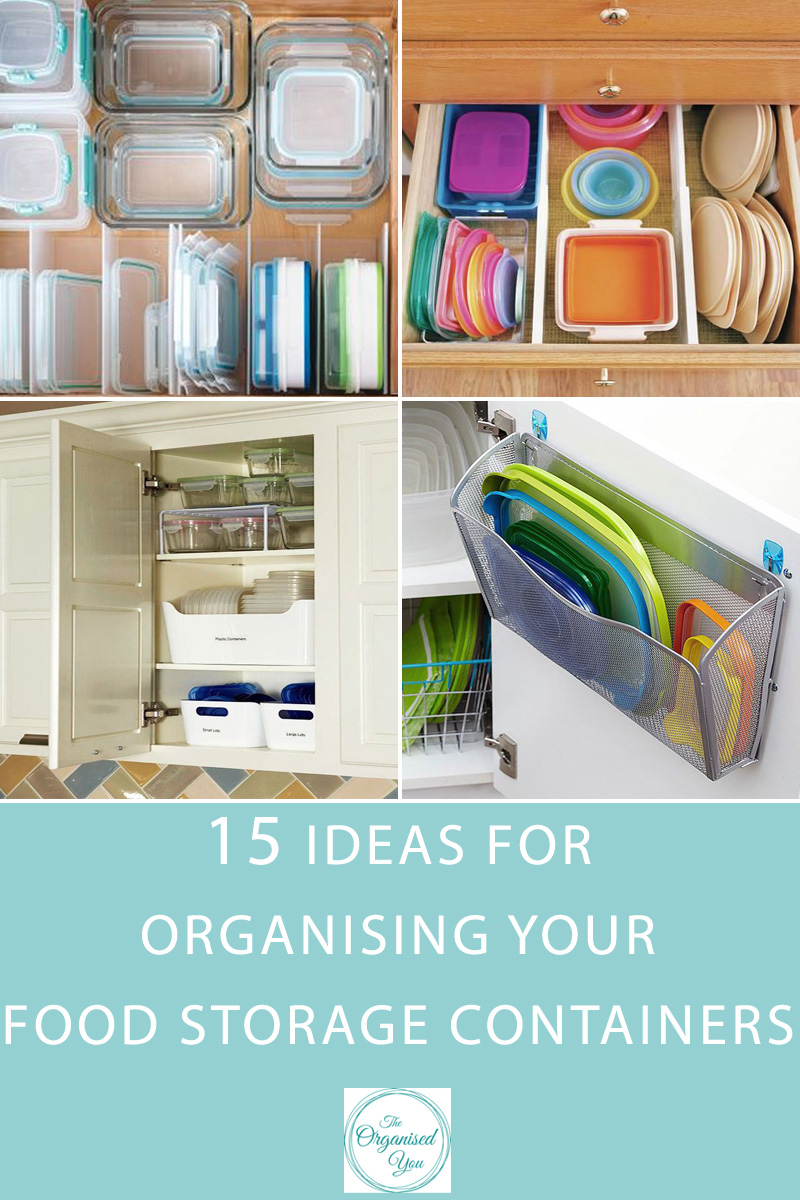A habit is defined as:
'Something that you do often and regularly, sometimes without knowing that you are doing it' (Source)
Over my 2 years as a professional organiser, I've noticed a common problem with the clients I work with that greatly impacts how they manage the general running and organisation of their home. If you ever feel overwhelmed by the state of your home, or you don't know where to start when it comes to getting your home more organised, you may be able to identify with this problem.
The problem is that many people have not developed good daily habits around organisation. When I talk about good habits, I'm referring to those things you can do daily to make your home clean and tidy, organised, and easy to maintain, so that things are running as smoothly as possible.
At first, you'll have to choose to make a concerted effort to incorporate those 'good' organising habits into your day. But if you do them regularly, they will become habit, a natural part of your everyday routine that you won't even have to think about.
While it's important to have good organising habits in all areas of your home, today I want to focus specifically on the kitchen, and 5 smart habits that will simplify your life in this space.
BONUS: Get your FREE cheat sheet to restore calm and order to your kitchen by clicking on the button below!
In my post on 25 habits of a highly organised person, I spoke about recognising that organised people didn't magically become that way. Instead, they have turned a variety of tools and system in their lives into daily habits, which allows them to approach their day with greater efficiency, productivity and focus.
Let's look at this in relation to the kitchen.
Because the kitchen is a central zone of the house where so much action takes place, it can easily become cluttered, messy and overrun with 'stuff'. This in turn causes stress, frustration, disappointment and even embarrassment with spending time, or having others spend time, in your kitchen.
Good daily habits will help you stay on top of the mess and clutter that a kitchen will inevitably bring. Here are 5 smart habits you can undertake daily that will help you maintain calm and order in your kitchen with a lot less energy and effort.
1 | Put things away when you’re finished using them
‘A place for everything and everything in it’s place’ is a phrase I'm sure you're familiar with. And nowhere is this more integral than in the kitchen. Having a home for everything means you're less likely to have cluttered countertops, overflowing drawers and cupboards, and difficulty finding what you're after.
Cleaning the kitchen only becomes an overwhelming and massive job when you don't put things away when you're finished using them. Every time you’re about to put something down in your kitchen, ask yourself if it is the right place. If it’s dirty, put it in the dishwasher. If it’s a food item that’s finished being used, put it in the fridge, pantry or freezer. If it doesn’t belong in the kitchen at all - handbag, keys, mail, glasses - then put it in its proper place straight away (the entryway is a great drop spot for most of these belongings!).
Another good mantra to live by in the kitchen is: if it takes less than 2 minutes, do it now! Wipe the counters, refill the coffee canister, put rubbish in the bin, hand-wash a few dishes. If it can be completed in less than 2 minutes, and you make it a habit to put things away when you're finished using them, your kitchen will be able to function more efficiently and effectively.
>> GET THE STEP-BY-STEP PROCESS FOR CREATING A MORE
EFFICIENT AND ORGANISED KITCHEN THAT WILL SAVE YOU
TIME AND ENERGY, IN 'CLEVER KITCHENS'.
CLICK THE BUTTON BELOW TO LEARN MORE! <<
2 | Keep the countertops clear
Countertops and benches need to be kept as clear as possible in order to give you maximum prep space. If your countertops are covered in bits and pieces and miscellaneous 'stuff', you're going to get frustrated when preparing and cooking a meal. Cleaning up will also take longer as you'll have to keep lifting things out the way to clean underneath.
Keep the countertops clear by putting items back where they belong (see #1) and only keeping the essential items out. Essential items refers to those things you use on a regular basis every day in your kitchen i.e. kettle, coffee machine, chopping boards, most-used utensils etc. All non-kitchen related items should be housed in different areas of the house.
PSST.... Don't forget to grab your free cheat sheet to help restore calm and order to your kitchen!
3 | Deal with incoming paperwork on a daily basis
Paperwork can often be a major clutter-causing culprit in the kitchen (try saying that 5 times fast!). Paperwork in the kitchen can include daily mail, newspapers, magazines, receipts, forms to be filled out, bills, invitations, cards, recipe clippings, shopping lists... the list goes on! If you were to look at your countertops right now, which of these items would you see?
The best way to prevent those paper piles building and taking up precious prep space is to set up an area near the kitchen to deal with it. I like to call this area 'a family command centre' but it is also known as an organised drop zone or command central. Basically it serves as a place to house all the paperwork in an organised, workable system.
A command centre does not need to take up a lot of space - a simple divided storage box with labelled files can do the trick. You can see my family command centre from our old house here, which was set up in a small corner of our living room, right next to the kitchen. (I can't wait to show you my new space in the new year - it's in the works as we speak!)
You should be dealing with incoming paperwork on a daily basis by sorting through mail and immediately getting rid of anything you don't need. You might like to do this at your kitchen bench or table where you have a bit of space to spread out, but the important thing to remember is to get it out of the kitchen and into your paperwork sorting system as efficiently as possible.
I use different file folders and a divided box as my sorting system, and designate one day of the week to deal with all the bigger paperwork tasks in one hit. Having a spot to sort the paperwork keeps it out of my kitchen and maintains those clear counter-tops. Down with paperwork!
Related Post - Round Up: The Best of Paperwork Organisation
4 | Clean up as you cook
There’s nothing worse than finishing a lovely meal and having to turn your attention to an enormous pile of dishes!
I remember doing Home Economics at high school and my teacher was fastidious about making us clean up as we went - it was even part of our class assessment. Cleaning up as you go means putting dirty items next to the sink or straight into the dishwasher when you've finished using them, wiping down bench-tops as you go, putting food items back in the fridge/freezer/pantry when they've been added to the meal, and putting rubbish straight into the bin.
Now I'm so grateful for learning this important skill, as cleaning up as you go makes the final clean-up so much quicker and easier. It's one of the best habits to get into to help make the cooking process more efficient and enjoyable.
5 | Have a set routine for morning and evening
Having set routines for your morning and evening will allow you both a fresh start to your day, and the ability to fully relax in the evening.
Your morning routine might include:
emptying the dishwasher
putting away clean dishes from the dish-rack
setting the table with all the breakfast necessities
eating breakfast
cleaning up
preparing lunches
loading the dishwasher
wiping down bench-tops to ensure the kitchen is nice and tidy for the start of the day
(**If you're super organised, you might even squeeze a bit of dinner prep in there!)
The evening routine might include:
cleaning up after dinner
loading the dishwasher and switching it on (and emptying it if you've got the energy)
wiping down benches
clearing those kitchen surfaces of anything that doesn't belong
If you've got kids and they're anything like mine, they will thrive on routine and knowing exactly what's happening, which in turn might encourage them to help out as they know exactly what's happening. My little ones like to help set the table, bring their dirty dishes to the sink, spray the table to be cleaned and sometimes they help with unloading the dishwasher.
Although each of these habits will take time to incorporate into your daily routine, once you do, you'll be saving time, energy and effort on a daily basis - guaranteed!


































